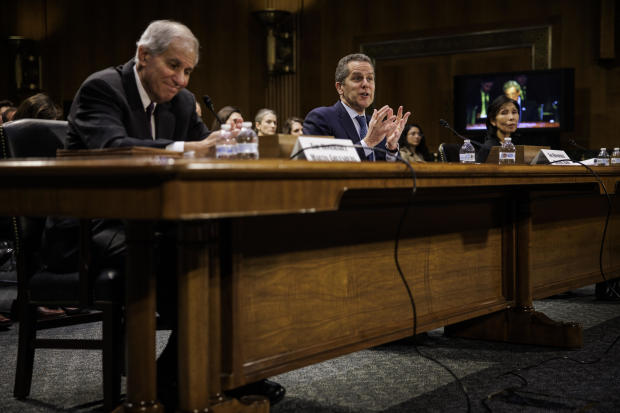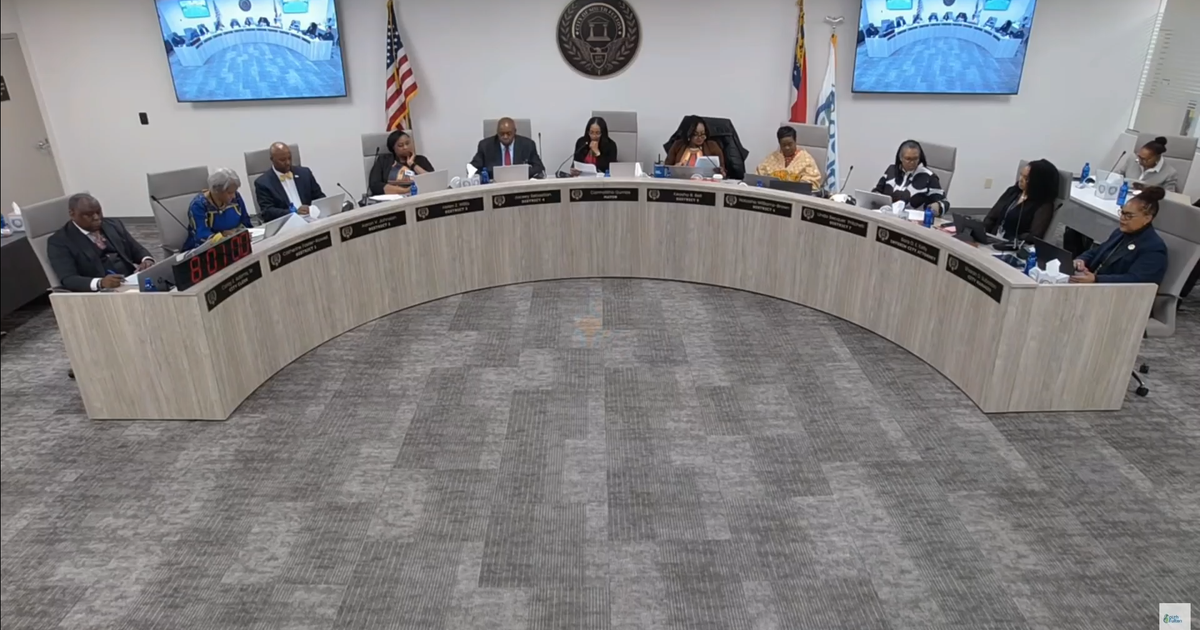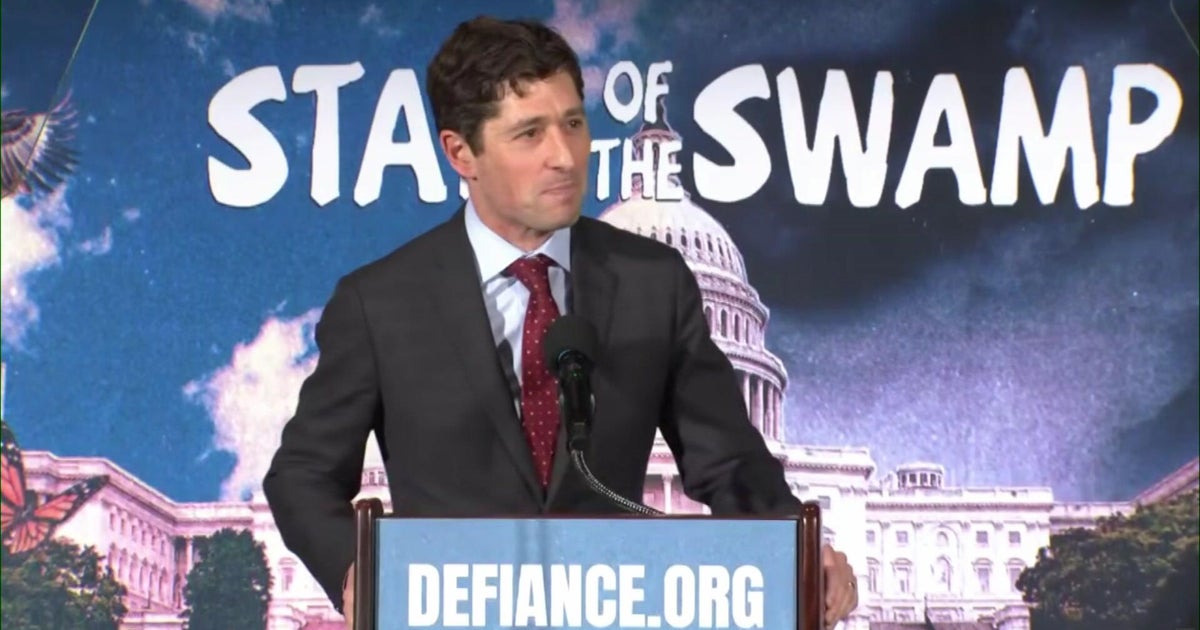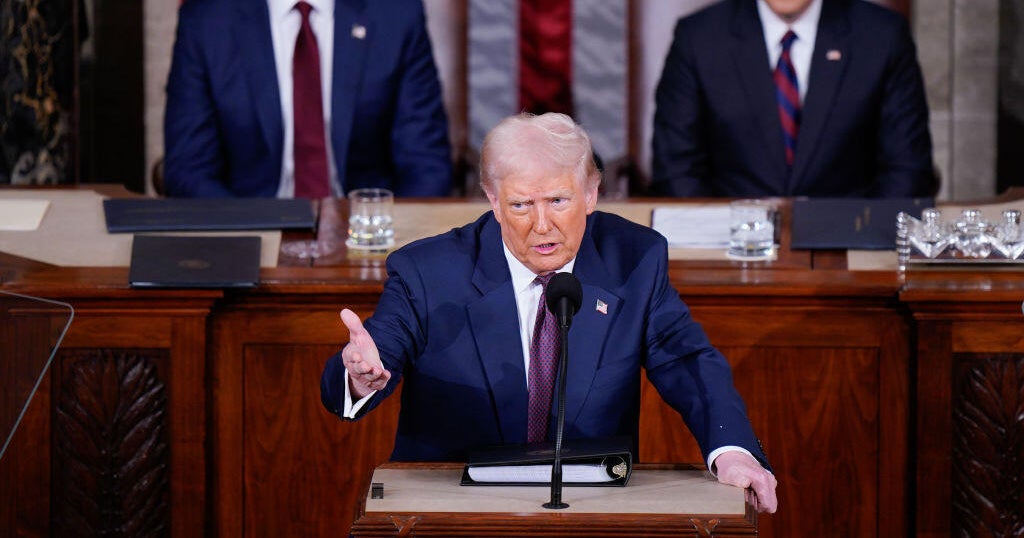Fed calls SVB's failure a "textbook case of bank mismanagement"
A top Federal Reserve official told Congress Tuesday that Silicon Valley Bank (SVB) failed because it didn't effectively address problems raised by the Fed as early as November 2021.
"SVB's failure is a textbook case of mismanagement," said Federal Reserve Vice Chair of Supervision Michael Barr. He listed the factors that led to its failure, noting its concentrated business model, with clients in the technology and venture capital sector.
As the tech sector boomed early in the pandemic, the bank "grew exceedingly quickly, tripling in asset size between 2019 and 2022," he told the Senate Banking committee. Deposits grew, and SVB invested in longer-term securities for greater yield and profits — but it never developed "effective interest rate risk measurement tools, models, and metrics."
"SVB failed because the bank's management did not effectively manage its interest rate and liquidity risk, and the bank then suffered a devastating and unexpected run by its uninsured depositors in a period of less than 24 hours," Barr also said of the bank, which collapsed on Mar. 10. He testified that supervisors began to issue warnings in November 2021, and the bank failed to address issues in a timely manner.
Barr along with Federal Deposit Insurance Corporation (FDIC) Chair Martin Gruenberg and Treasury Under Secretary for Domestic Finance Nellie Liang testified before the committee about the failures of SVB and Signature Bank and attempted to reassure lawmakers that the banking system remains sound and resilient.
The FDIC estimates the cost to the Deposit Insurance Fund to cover the collapse of Silicon Valley Bank to be $20 billion — including $18 billion to cover uninsured deposits, according to Gruenberg. And the failure of Signature Bank is likely to require about $2.5 billion, including $1.6 billion to cover its uninsured deposits.
"I would emphasize that these estimates are subject to significant uncertainty and are likely to change, depending on the ultimate value realized from each receivership," Gruenberg, whose agency was appointed to manage both banks after their collapse, said in his written statement submitted to the committee ahead of his testimony Tuesday.
Barr is leading the Federal Reserve's review of the two bank failures. That report will be released May 1. In his remarks, Barr notes that the Federal Reserve was fully responsible for the federal supervision and regulation of the bank, and the Fed's review will examine both the growth and management of Silicon Valley Bank, as well as the Fed's engagement with the bank and regulatory requirements that applied to the bank.
"SVB's failure demands a thorough review of what happened, including the Federal Reserve's oversight of the bank," Barr wrote ahead of his testimony. "I am committed to ensuring that the Federal Reserve fully accounts for any supervisory or regulatory failings, and that we fully address what went wrong."
But Ranking Member Sen. Tim Scott, Republican of South Carolina, blamed regulators, who he said were "asleep at the wheel."
Throughout the hearing, lawmakers raised questions over whether there was a statutory failure as well. Barr said the Fed has substanital discretion for its rulemaking under current law. The Fed could indicate what legislative changes it might need to address rule changes upon conducting their review.
Democrats argued that the 2018 rollback of the Dodd-Frank bank overhaul, which reduced the regulatory burden on all but the nation's very biggest banks, was a mistake and should be revisited.
All three witnesses at Tuesday's hearing agreed with the need to strengthen regulations in light of the bank failures.
The sale of each of the FDIC managed bridge banks has been completed; a large portion of Signature Bank was sold to Flagstar Bank, and SVB has been sold to First Citizens Bank.
The FDIC has already started its own investigation into who should be held accountable in the wake of the failures. Gruenberg told lawmakers that the FDIC will review the deposit insurance system and will release its report at the same time as the Fed issues its report, on May 1.
As fears spread about the solvency of the banking system, the Treasury Department, Federal Reserve and FDIC announced on Mar. 12 that the FDIC would be able to guarantee all deposits at both Silicon Valley Bank and Signature Bank beyond its stated limit of $250,000. Liang told lawmakers Tuesday had officials not taken action, the bank runs would have intensified, but their efforts stabilized the situation.
The losses to the Deposit Insurance Fund will have to be recovered through special assessments on banks. The FDIC aims to issue more information on those assessments related to the failures of Signature Bank and Silicon Valley Bank, taking into account input from the public comment process in May.
During the hearing, Gruenberg said the FDIC has discretion to exempt some banks, such as community ones, from the special assessments, but he declined to commit to senators to doing so at the hearing.
Despite the recent failures, all three officials to testify said that the U.S. banking system remains sound. While both the Federal Reserve and FDIC both are conducting reviews of the bank failures, both welcomed independent investigations.




